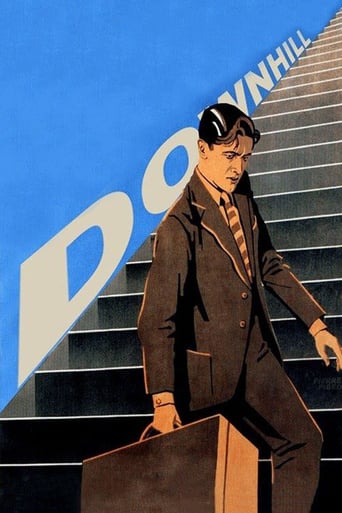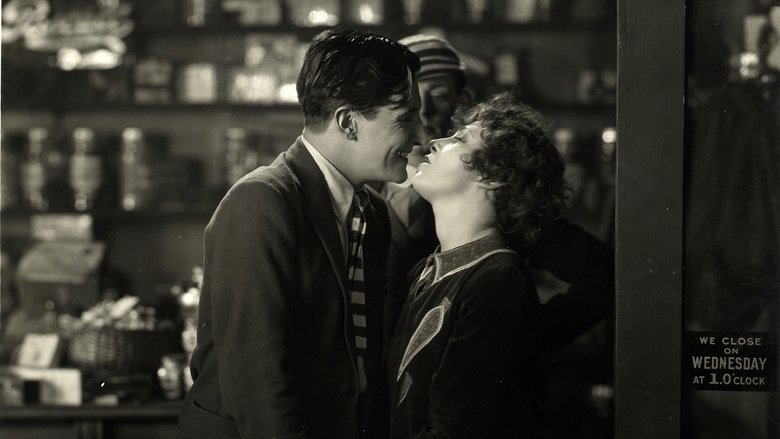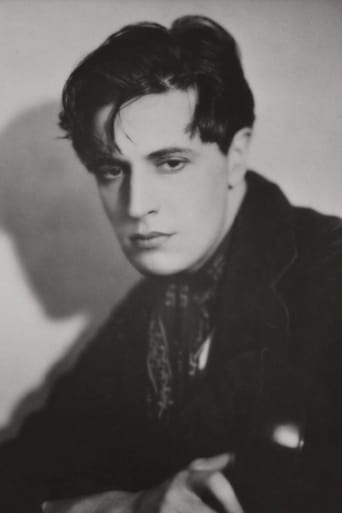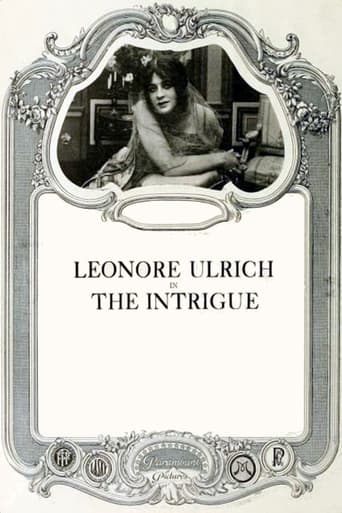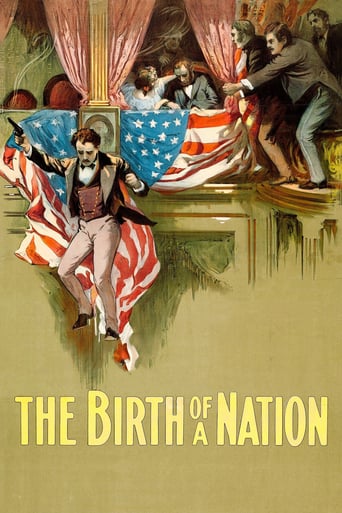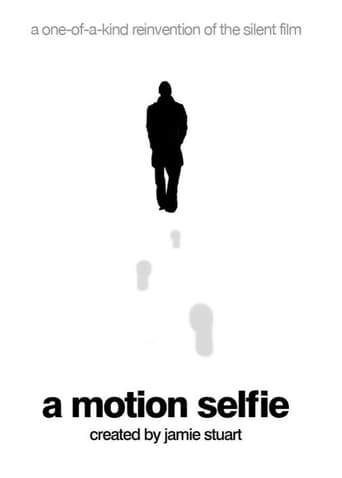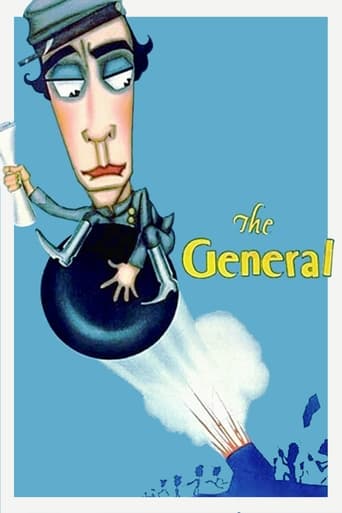Downhill (1928)
Roddy, first son of the rich Berwick family, is expelled from school when he takes the blame for his friend Tim's charge. His family sends him away and all of his friends leave him alone. Through many life choices that don't work out in his favor, Roddy begins to find his life slowly spiraling out of his control.
Watch Trailer
Free Trial Channels
Cast


Similar titles
Reviews
Perfect cast and a good story
I gave it a 7.5 out of 10
Bad Acting and worse Bad Screenplay
Am I Missing Something?
"Downhill" is the fourth early Hitchcock movie I discovered after "Waltzes from Vienna", "Juno and the Paycock" and "Mary" (I discount the original "The Man Who Knew Too Much" as the film started Hitch' canon), so the more restored gems I discover, the more I understood how Hitchcock became one of the most prolific directors ever.I could have said 'one of the greatest', but 'great' is a misleading word, Orson Welles was one of the greatest too, but his first strike was also his masterpiece, Tarantino also started with his best movies but it's not just about hitting a home run in your first game, but about keeping the distance after that. Hitchcock was a late bloomer, he only made a name for himself in his forties and became the world' most iconic filmmaker in his fifties. It took a long time, but this is what allowed him to make a lot of films, just like John Ford, some were good, a few of them were great, but most of them were forgettable, if not forgotten. Still, within their own debatable quality, these movies he made as a contract-director allowed him to sharpen his tools and make his bones, the slow and hard way.In "Waltzes from Vienna", Hitch' experimented the use of music in order to make it in line with the action, a device that would be useful in "The Man Who Knew Too Much". In "Mary", it was the use of point-of-view shooting, every little movie he made planted the seeds of his emerging talent but "Downhill", Hitchcock's silent movie, released in 1927, was a totally different experience. While I expected the work of a rising director still learning the tricks, I discovered an ambitious, absorbing and compelling psychological drama, working like the ancestor of "Requiem for a Dream", even with the same straightforward title. And the storytelling was like the hurly-burly of life grabbing your heart and taking you in the path of the main protagonist played by Ivor Novello, i.e downhill.The movie chronicles the descent into poverty and madness of Roddy, a handsome young preppy promised to a brilliant future, Captain of his school rugby team, coming from a rich family, eye-pleasing and maybe his worst quality: goodhearted. After flirting with a waitress and dating her with his friend Tim, he learns several days later from the headmaster that the girl is pregnant. The film clearly indicates that Roddy's innocent, if there ever is one culprit because nothing actually proves she's pregnant, but, her target is Roddy because she knows he's the wealthy one. And since Tim needs his father's money for a scholarship, to get to Oxford, Roddy sacrifices his career and causes himself to be expelled. Back home, his father won't believe his innocence (why should he? Who can be fool enough to jeopardize his life for an act he didn't commit?) causing his son to slam the door.There is a very defining moment in "Downhill" when a sad-eyed Roddy takes the subway's escalator and slowly vanishes from the screen. It is not the most subtle symbolism but it is very poignant and powerful within the plot's narrative as Roddy's journey can be compared to a slow downfall. Roddy starts as a stage actor and gets involved in a relationship that would empty his pockets because of a venal actress who won't improve his trust on people of female persuasion and he finally turns into a gigolo in a sordid French nightclub where we can see, while an old lady is having a heart-to-heart talk with him, that the man is drowning in his own self-loathing bitterness, constantly wondering how he ended up in such a situation.Besides Hitchcock's directing, Ivor Novello's performance is integral to the film's strength, of course it carries the mark of the silent era, and I concede that many close-ups or side-eyes from the characters were a bit distracting, but when I saw the film, I had to interrupt it and check the name of the actor, I realized Novello was 34 during the film, which was surprising because he really looked sweet and innocent in the beginning as the idealistic smiling preppy, I really thought he was in his twenties. Yet near the end, when the delirium phrase begun, you could almost give him the age of 40, and it's definitely not the make-up, the face of this poor man is like a sponge that absorbed so much hardship that you could only feel the pain in his eyes. And the talent of Hitchcock is to completely rely on the face of the actor to convey the tragedy of his life and use the minimum of card-boards to make his point.And the least card-boards there were, the more efficient they were, and I felt like it was Hitchcock putting himself in his so cherished Gold-like position, with an obvious sympathy toward Roddy, because the ugly words were never directed at him but at the steps of his hellish journey, calling 'stage' the world of 'make-believes' or nightclubs 'the world of lost illusions'. The film is interesting because it give us a hint on how Hitchcock, the man whose touch could always be read in his movies, could make his presence visible in the silent era, when he hadn't much trademarks to show off. And the result is simply astonishing and carries all the promises of Hitch's talent.A few words about the ending, I expect many viewers will be surprised by the 'happy' ending, thinking that realistically, the man should have ended up in a worse situation, but think about it, had it happened today, with the Internet and all the modern devices, he certainly wouldn't have went through the same troubles and been easier to find. The 20's were indeed a time where you could go downhill quicker than you'd think, and it's very revealing that the film's other title is "When Boys Leave Home".
A slapdash early effort by young director Alfred Hitchcock, "Downhill" a. k. a. "When Boys Leave Home," delivers moments of brilliance undone by an underbaked plot.Young Roddy (Ivor Novello) is expelled from his boarding school when he is charged with a major infraction involving a woman at a local bake shop. No use appealing to his father, who stares at him with frightening disgust. Roddy makes his way alone in life, coming up against a pair of theatrical con artists before landing in a seedy music hall, providing dances for lonely women at 50 francs a whirl. It all gets to be too much for the frail boy.Poor Roddy can't catch a break, even in cyberspace. A lot of reviewers, both here at IMDb.com and elsewhere, have at the fellow for one deathless line he delivers when his headmaster drops the hammer: "Can I - Won't I be able to play for the Old Boys, sir?" It's a line dripping with ingenuousness, but actually works better in context. Roddy is a true believer in the code of his school who runs up against a world that doesn't allow for second chances.Based on an adaptation of a play Novello co-authored with Constance Collier under the pseudonym "David L'Estrange," "Downhill" pushes the action from one setpiece to another with little explanation or character development. Hitchcock seems far more enthusiastic about his set pieces and camera tricks than giving the viewer anything to hold onto. Even dialogue cards are kept at a minimum in this very non-verbal silent film.The best sequence, a section called "The World Of Make-Believe," plunges Roddy into the harsh world of show biz, where conniving actress Julia (Isabel Jeans) and her significant other Archie (Ian Hunter) set up a suddenly cash-rich Roddy.Watching Archie as Roddy pledges his love to Julia, smoking and drinking and looking frightfully bored as he awaits the chance to offer his casual blessing to their ersatz union, features terrific acting from all concerned. Hitchcock does well in this section by playing up the humor of the situation. But when it's over, there's no explanation or attempt at grounding things. What's this kid going to do about his new marriage? We just follow Roddy to his next stop on his downhill journey.Hitchcock presents us with some arresting images. One favorite of mine shows a daytime view of Roddy's boarding school dissolving into a scene of London at night. Anyone curious at how England looked in the 1920s will enjoy these views for their travelogue value, anyway.Novello is worthy, too, carrying the film as he must. He's too old for the part, but believably earnest even as he goes from bright student to all-around chump. A better film would give us more of a basis for this, but all we get is some eye fluttering from Novello to tell us of his deer-in-the-headlights state. It worked for Novello's female fan base at the time, but not for us.Hitchcock too often works in this surface manner. He shrugs off any subtlety in pursuit of the big effect. The worst of these feature Roddy's father, Sir Thomas (Norman McKinnel), who bears a striking resemblance to Nosferatu and shows up late in the film in Roddy's wracked point-of-view in a slew of implausible guises.Still, I was interested enough in Roddy's journey, if only as a matter of historical interest. Early on, we see he is the genuine article, a real believer in the world he inhabits, holding a cap emblazoned with the word "Honour." There's a scene, arrestingly similar to the deconstructive Lindsay Anderson film "if ", where Roddy and his friend meet that girl in the bake shop. No playing tiger in this one, Roddy just dances with the girl a little and tries to make a polite exit, but the damage is just as much as if he broke out the tommy guns like Mick and company in that later, anarchic classic."Downhill" is a coming-of-age movie that only really works as a look at Hitchcock's own coming of age – before he arrived.
In "Downhill", Ivor Novello's character life goes all downhill after a false accusation made by a girl who ruins his life as a rich schoolboy. He lost his only friend (Robin Irvine), abandoned his family after being thrown out of school, and all that happened because a pretty girl falsely accused him of getting her pregnant (there's a whole debate over what was the accusation because the film doesn't explain it so clear), which was a shocking thing at the time considering the societies conventions of the period.In a stunning dramatic exercise, way before his suspense films Alfred Hitchcock presents in "Downhill" the story of a man who lost everything trying to protect others but not himself, rejected his father because the last didn't believe in him, calling of him a liar, but this man realizes that he made a big mistake but not telling the truth to anyone, living a low-life with people of inferior classes, marrying with another troubled girl and more. And everything (methaporically and literally) spins around and around over this poor guy, so it's all downhill.This was my first experience on watching a Hitchcock silent film and it was a great pleasure to see how everything about it was brilliant, important, the way he moves with his camera, edition, direction of actors, the whole package. Novello's performance as the main character living in a constant delirant state, showing a sorrow that doesn't need to be overacted or appear to be so emotional, no, he has an expressive face that says more than we can see, you can feel his desperation and sadness in simple gestures. There's some bit humored parts (the fight between Novello and his wife lover at the apartment) that calm down the almost depressive story.One of my favorite parts (and to you might sound pointless) is a transition scene that fools the viewer in a magic way. Right after Novello left home we see him working as waiter in a restaurant, attending a couple that walks away from the table and start to strangely dance followed by other people. The image opens up without cutting and we see a stage, musicians and a whole crowd watching the dancers scene, Novello and other waiters start to dance too and we are fooled because he's not a waiter, he is an actor in a musical play. It's a very humorous transition scene and way ahead of its time, very brilliant and well made.I watched the film in the Public Archive (the link is present here on IMDb) so there's a few things to complain about their version, and another one that helped me watching the film. First: the final minutes of the film are missing, very significant five minutes (gladly, I found the missing part on YouTube). Second: their version doesn't feature the musical score presented in it which leads to the thing that helped me watching it; I selected classical musics to go with the film and that was very clever of my part, because the absence of sound (in this case) made me think on other things than the film, the problems of life and things like that. But after watching "Downhill" hearing instrumental music made the experience even better, and it wasn't distractive as I thought it would be. So my suggestion is that if you watch the film in the Public Archive do that, listen to Tchaikovsky, Strauss or film composers scores, that will help you a lot.From the very first scene at the school with the boys playing in the park until the last similar scene at the ending, "Downhill" justifies only the story as being a downhill thing, because looking at its magnificence it's a memorable and upper film. One of Hitchcock's best works even though it's not a work of suspense. 10/10
I watched Alfred Hitchcock's DOWNHILL (1927) starring Ivor Novello. I thought this was a fascinating film although it's not very well regarded.Novello plays a wealthy Oxford student who stupidly takes the blame after a vindictive waitress points him out (his father is rich) as her seducer. The real seducer is his friend, but he takes the blame, assuming it will all blow over. But he gets expelled and sent home where his father pitches a fit and calls him a liar. Novello storms out of the house.Cast into the cruel world, Novello must find his own way. In a brilliant sequence, following an intertitle that announces "make believe" we see a well dressed Novello holding a cup of coffee, but as the camera pulls back we see that he is holding a tray and serving coffee to a flashy couple (Isabel Jeans, Ian Hunter). Well at least he has a job! But then as the couple heads to the dance floor the camera pulls back again and we suddenly realize that, as the couple starts dancing, they are on a stage. The audience comes into view and a line of high-kicking dancers races out onto the stage.Jeans turns out to be a selfish woman involved with Hunter. There is never enough money. Novello becomes a hanger-on until he receives a telegram with news about an inheritance. Jeans quickly marries Novello and starts spending freely. Time passes. Jeans and Hunter are sitting in a lavish bedroom. She's endlessly sitting at dressing tables, admiring herself and her jewels. Novello comes home and find a pile of bills, an overdrawn notice from the bank, and Hunter in the closet. The apartment is in her name and he's thrown out into the cruel world.Next we find Novello as a taxi dancer in Paris. He seems to have a "manager" who sells his dances and possibly more. While he dances we see a middle-aged age woman (Violet Farebrother) sitting at a table. She can't take her eyes off him. She arranges for an introduction. He babbles away, telling her his sad story while her eyes frankly devour him. Amazing sequence. But as morning dawns and the blinds are raised, Novello finally see this tawdry world of drunks and dissolutes and once again goes out into the cruel world to Marseilles.Sick and broke, Novello is saved by a pair of sailors and put on a ship back to England after they find a returned letter. Do they think there will be a reward? During the voyage, Novello hallucinates and relives his past accounts with all the horrid women in his life. This is a beautifully done scene. Finally he arrives home.I cannot think of another film from this era where the male is the societal victim and who, through nobility, suffers as he descends to the depths at the hands of women. Novello is actually playing a twist on the many Ruth Chatterton roles where she follows this sort of journey to find redemption and/or death. Along with The Lodger, this may be Ivor Novello's best film performance.As for Hitchcock, there are many great scenes here and lots of symbolism as Novellos is seen on escalators and elevators going down, down, DOWN.

